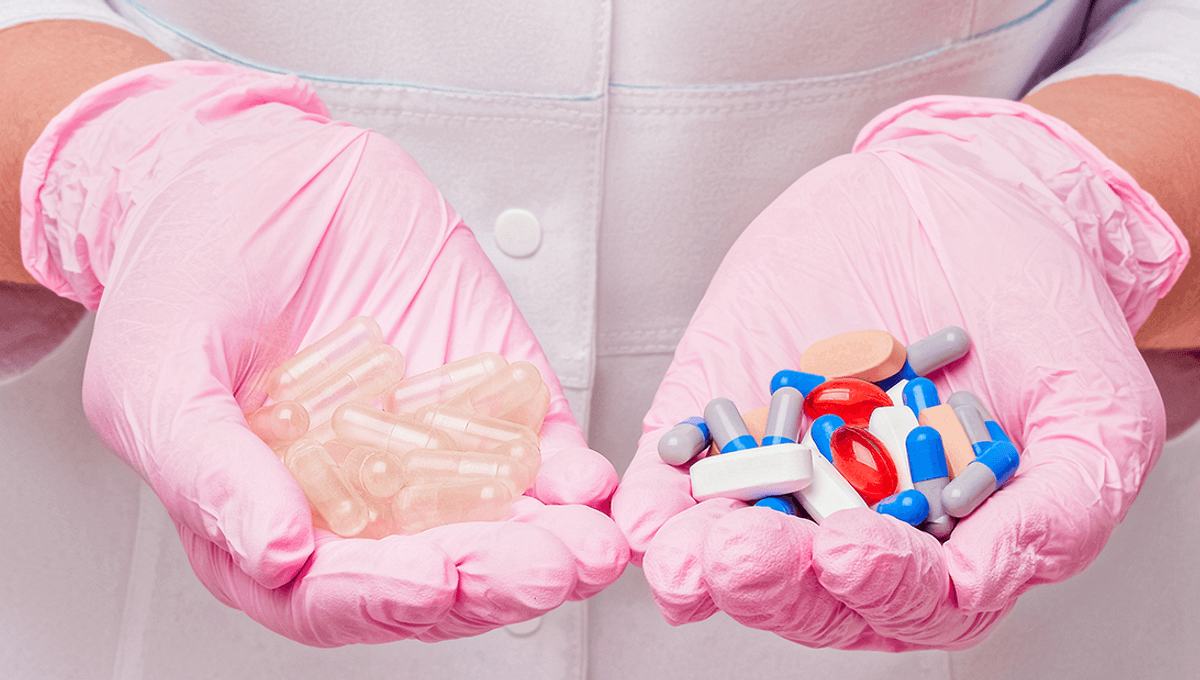
People are once again discussing the placebo effect, where patients appear to improve after being given a dummy treatment, such as a sugar pill, rather than conventional treatment.
X (formerly Twitter) user zeta_goblin started the conversation, asking their followers about a weird aspect of it: the effect has still appeared in studies where it was explained to patients that they were receiving a placebo.
Small studies have found this effect, including one that explained the placebo effect to one group for 15 minutes before giving it to them. This group was able to endure the second half of the test – having heating plates applied to their forearms and the heat turned up until they couldn’t stand it – for longer than those who had not had this talk, but were offered the placebo cream without explanation. Small studies have even seen patients with Parkinson’s have shown improvement in motor scores after receiving placebos.
Clinicians do believe in the placebo effect, and do prescribe placebos to their patients. One BMJ survey found that during the preceding year around 3 percent of physicians in the US had used saline as a placebo and 2 percent had used sugar pills; 41 percent had used over the counter analgesics as a placebo, and 38 percent vitamins.
“A small but notable proportion of physicians reported using antibiotics (86, 13%) and sedatives (86, 13%) as placebo treatments during the same period,” the authors note in their paper.
So, the placebo effect works and doctors are using it, everything’s great right? Well, not quite. There are those who think it shouldn’t be used because it is deceptive to patients. Furthermore, there are those who think the placebo effect is largely the result of the natural course of a disease (which may fluctuate) and “regression to the mean“, the tendency for extreme measurements to be closer to the mean when repeated.
To assess the effectiveness of placebos in 2001, one team conducted a systematic review of 114 clinical trials where patients had been randomly assigned to placebo groups or no-treatment groups (of course, these trials also had a treatment group, but their focus was to compare placebo-taking patients with those going through the normal course of the condition).
“We did not detect a significant effect of placebo as compared with no treatment in pooled data from trials with subjective or objective binary or continuous objective outcomes. We did, however, find a significant difference between placebo and no treatment in trials with continuous subjective outcomes and in trials involving the treatment of pain,” the team wrote in their study, concluding, “Outside the setting of clinical trials, there is no justification for the use of placebos.”
A follow up study in 2004 analyzing 52 new trials found the same; little evidence of a large placebo effect, some small effects on continuous outcomes (such as discomfort), especially pain, though even this “could not be clearly distinguished from bias” according to the study’s authors.
In short, placebos do seem to have a limited effect on patients’ self-reported pain and other subjective measures, but compelling evidence for a positive outcome on diseases, or a physiological mechanism that explains how they would work on disease, is lacking.
Source Link: People Are Discussing Whether The Placebo Effect Actually Exists